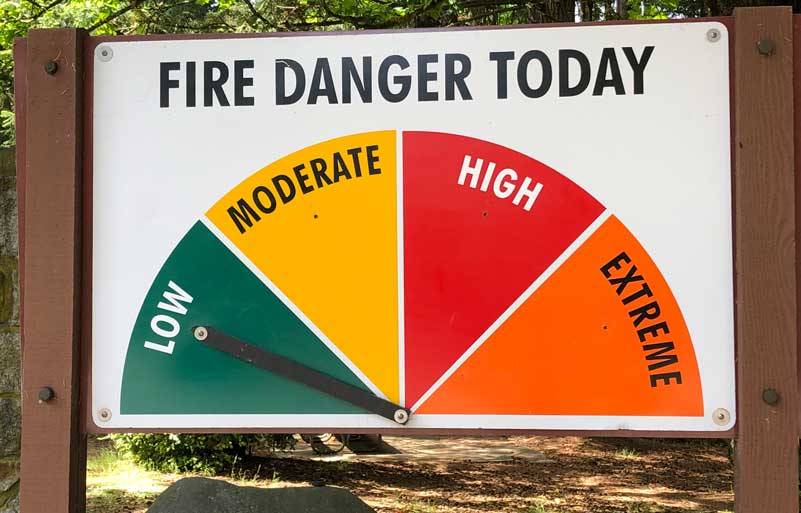By Morf Morford
Tacoma Daily Index
We, in the Pacific Northwest, probably have no greater feature universally linked to us than our rain.
We may love it or hate it, but we are forever identified with it. And, much to the surprise of many, we are lost without it.
The summer of 2021 will certainly go down in history as our region’s driest in centuries – if not millennia.
We might think of rain as a passing feature of our weather – and it is, but it is much more than that.
Unlike most parts of the country, if not the world, where the rain comes, and often floods, even if it doesn’t, it rarely sticks around and has any useful purpose.
Other areas might have dams and reservoirs – and we have our share of those.
But we have something better – far better.
We have mountains that collect and store snow.
When it rains down here in the lowlands (under about 300 feet above sea level) that precipitation we know (and often curse) as rain, falls as snow in the upper elevations.
And that snow accumulates over the years and decades, even centuries.
On the hottest day of the year, in the middle of the hottest and driest season, any one of us can see, or even drive up to the mountain and encounter directly, snow, or even ice-filled glaciers.
That snow, besides offering recreational opportunities for skiing, snow boarding and more is the ultimate storage system for essential, year-round, literally life-giving water supplies for many communities at the base of the entire mountain range.
The mountain’s Native name in fact is tied to this characteristic – the source of many waters.
The mountains are the source of “many waters”, but that is because they are the collection (and storage) point of the precipitation that we, down in the lowlands see as rain.
No matter how dry it gets, or how many weeks we go without actual rain, we have years, even decades worth of water in, ahem, cold storage.
But even though we might imagine and tell ourselves that it is infinite – it isn’t.
Again, whether we love or hate the rain, the bottom line of our survival is that we need it.
And we need it in more ways than most of us could ever have imagined.
We all know, even if we rarely acknowledge or appreciate the fact, that we all use and need water for daily uses from drinking to cooking to washing and a thousand more immediate, utilitarian uses, but who of us would have even considered how important rain is a few hundred miles from here to keep forest fires at bay and save forests and wilderness areas – and save us from days, or even weeks of suffocating smoke?
The smoke, you may have noticed, tends to come our way alongside our hottest weather.
I’ve always considered humidity to be my least favorite weather characteristic; but I have a new “least favorite” weather feature – smoke.
Smoke, as we have all learned in the past few years, is essentially inescapable. It slips through our windows and doors, aggravates our asthma and other breathing conditions, and settles in our lungs, among other places.
It blurs our views, pervades every aspect of our lives and hovers over our cities and valleys.
And of course, it is evidence of forests burning hundreds of miles from here.
One morning a few summers ago, I stepped outside to see tiny white flakes falling from the sky.
It wasn’t snow.
It was flecks of ash from a forest fire many, many miles away.
Forests on fire, especially in rugged, difficult to reach areas (as is often the case) are never good – especially on the scale we currently see them.
We in the Puget Sound region, thanks to our location, altitude and variable wind and ocean currents, attract smoke from almost every direction.
We get wild fire smoke from California and Oregon, British Columbia and Eastern Washington, sometimes even Siberia.
In other words, we get smoke from the north, the south and the east.
The Puget Sound is, literally at sea level, and acts as a basin collecting and retaining smoke.
Only wind, and even more so, rain, can save us.
The wind and rain don’t need to be here, of course.
Wind and rain hundreds of miles away has a huge impact on our weather and many aspects of our lives.
And the absence of rain in many areas across mountain ranges and international borders has a huge impact on agriculture, trade and travel – besides putting a crimp on our everyday lives.
On a basic level, going for a neighborhood walk, or sleeping with the windows open on a hot and sultry evening is an entirely different experience when smoke is persistent and unavoidable.
And rain, here or a hundred miles from here, rain anywhere in fact, can save us from weather that can literally kill us.
Heat, by the way, kills far more people (and other living things) than any other aspect of weather.
Heat and smoke, in a time of pandemic is, as one recent article put it, “the perfect storm” – https://www.seattletimes.com/seattle-news/heat-smoke-and-covid-a-public-health-perfect-storm/.
If you want to track this new North American weather feature, try this smoke map – https://www.bloomberg.com/news/articles/2021-08-16/the-best-maps-to-track-air-quality-wildfire-smoke?.
Rain, a little or a lot, here or somewhere else, can change the tempo and texture of our lives.
The rain, especially those seemingly endless rainy days, may get us down, but I get the feeling that this year, and probably for years to come, we will appreciate rain as never before.
For some of our other thoughts on rain, check out;
https://www.tacomadailyindex.com/blog/go-ahead-admit-that-you-actually-like-the-rain/2443147/
or






